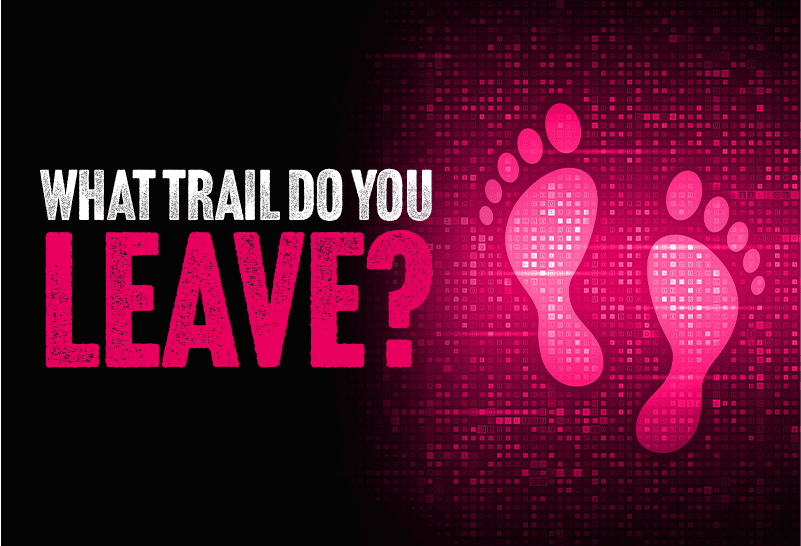- Blog
Scammers in the marketplace shadows
Online marketplaces are a great way for buyers and sellers to interact and trade goods and services for money in a convenient, streamlined place with little or no friction. But of course, where there are transactions or systems to be exploited, you can bet a scammer has figured out a way to capitalise on it. And they are coming after you, so best be aware of how they’ll show up.By Rightly
5 min read

eBay, Vinted, Shpock, are all big sites where buyers and sellers can meet, bid, buy and transact easily. You can connect a bank account, set up automatic payment of fees and the sites have been designed to make it easy. They are classic markets in that they create a place for buyers and sellers to meet in a low friction environment to make transactions go smoothly, agreeing a price for products or services and receiving them, usually through a third party delivery service, or online if it’s something digital.
But lurking in the shadows of these markets, scammers can smell opportunities to exploit users, both buyers and sellers. So, it’s good to be aware of what they’re up to and know how to spot the signs and avoid becoming a victim.
Things to look out for when you’re buying on eBay
Generally, eBay tends to side with the buyer in disputes. If you're buying you don't have to provide much evidence to make a claim that something is wrong and eBay tends to take the buyer’s word.
But there are still some ways in which, as a buyer, you can be caught in a scam.
For most eBay transactions, the company provides a ‘money back guarantee’ so if the seller doesn’t actually send you the item, or the condition is not what they stated, you can get your money refunded. However, there are several categories where the guarantee does not apply:
- Vehicles
- Property
- Digital content, including NFTs
- Websites and businesses for sale
- Classified ads
- Services
- Travel tickets or vouchers
Car scams on eBay have been widely reported, with scammers asking for an upfront deposit to be paid. There are many cases where people have done this and then it turns out there is no car and the scammer has simply stolen pics from another site, disappearing as soon as the money has gone across.
You might find the ‘seller’ is very enthusiastic and responsive, but starts to put pressure on to make an impulse purchase, saying they have other people interested and trying to set a very fast timetable to complete the transaction. The scammer may ask for payment in unconventional ways, for example through gift cards, or crypto currency. Alarm bells should be ringing at this point. In other cases, a car may appear, but turns out to be defective or even stolen.
The lesson is obvious - never part with any money without seeing the car and its paperwork before you do anything. Don’t stray outside of eBay’s payment and communications system.
Things to look out for if you’re selling on eBay
Sellers generally suffer more than buyers on eBay. Scammers find it pretty easy to target sellers and to be able to do it with little fear of repercussions.
One example is where a buyer offers to overpay for an item. They contact you and offer a lot more than you expected for the item. They try to pay you outside of eBay’s systems and get you to send the item. Only, once you ve sent the item it turns out that the money didn't actually show up.
Buyers offering to pay outside of eBay for items that are in auction often happen. They may just say, “how much do you want for it” and try to settle outside of eBay. But you lose all protection by agreeing to this.
Some scammers use a technique where they pay for an item, you send it, and then they claim you sent them an empty box. They open an eBay dispute, eBay forces a return and they return the empty box, and get their money back, leaving you without the item, or the money.
In another scam, somebody buys something from you, but it turns out they already have the same thing, but one that is broken, for example, a mobile phone. So then they make a claim that you sent a defective or broken item, get their money back and return the broken one. To avoid this kind of scam, make a note of the IMEI number of the phone and keep photos with time stamps to prove the condition.
Scams everyone should watch out for
The classic scam that looks like it’s eBay or another auction site is ‘phishing’. This is where you receive an email that appears to be from, for example, eBay, but in fact it’s a trick to make you click on a link that will lead you down a path that will expose you to financial harm or con you into parting with personal data the scammers can use against you.
The link in the email goes to a website that looks like a real website. You try to log in, and - too late. You’ve just handed your login details to a scammer waiting in the shadows.
Keep safe in online marketplaces
There are some simple steps you can take to protect yourself whether buying or selling through online marketplaces:
- Stay in the marketplace. Don’t agree to transact or communicate outside of the marketplace. Most will have protections that only apply if you stay inside
- Be wary of too-good-to-be-true offers, whether you see something you want to buy, or you're selling something and someone offers overpayment or wants to transact outside of the marketplace
- Never send an item until you're certain the money has arrived or at least held by the marketplace
- Use familiar websites that you trust. Always navigate to it, never click a link in an email or text
- Make sure the website uses https - not just http - in the web address, so it’s secure
- If an online retailer is trying to capture irrelevant information, such as your national insurance number, be suspicious
- Take the time to check your statements to be sure all the transactions were yours
- Create strong passwords, and consider using a password manager for extra security
- Keep your computer security up to date to defeat malware fake sites might leave behind
- If shopping on public WiFi, always use a VPN service to keep your data from prying hackers
- Using your phone to pay with Apple Pay or Google Pay is more secure than using cards because they generate one-time only authentication
- Check the seller - do some due diligence and make sure they are who they say they are
Keep your data safe, all the time
More generally, it’s good to have control of your data and only allow online marketplaces to have what they need and only for as long as they need it. That’s because your digital footprint, those little pieces of data left behind every time you do something online from shopping to social media to banking, can be used to build a profile of you.
Scammers use stolen personal data they gather from company data breaches or buy on the dark web, in order to target you. You can avoid your data being used against you by getting it deleted from any company that doesn’t need it any more. You’d be amazed at how many companies have your data, including many you've never heard of.
Use Rightly Protect to find out who’s got your data and get it deleted, quickly and for free.
Related Articles
- Privacy
4 min read

WWW Day: Celebration! and a little caution
We all use the World Wide Web every day, whether it’s to send an email, order a delivery, play a game or do your banking. It’s ubiquitous and has become as much of an essential service to modern life as electricity or running water. The Web allows us to open up amazing levels of communication all over the world, to reconnect with people we haven't seen in decades. But, it also enables criminals to target us, for sinister actors to manipulate elections and divide societies.
- Blog
7 min read

Leaving a digital trail
Not all browsers are created equal when it comes to security of your personal data. Some of the most popular browsers in the world are being exposed for collecting and selling user data or lacking adequate security measures.